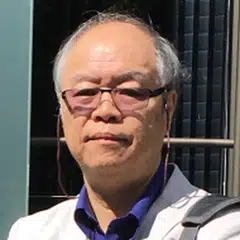Questions concerning mortality in early China [3 of 3]: The netherworld and the state machine
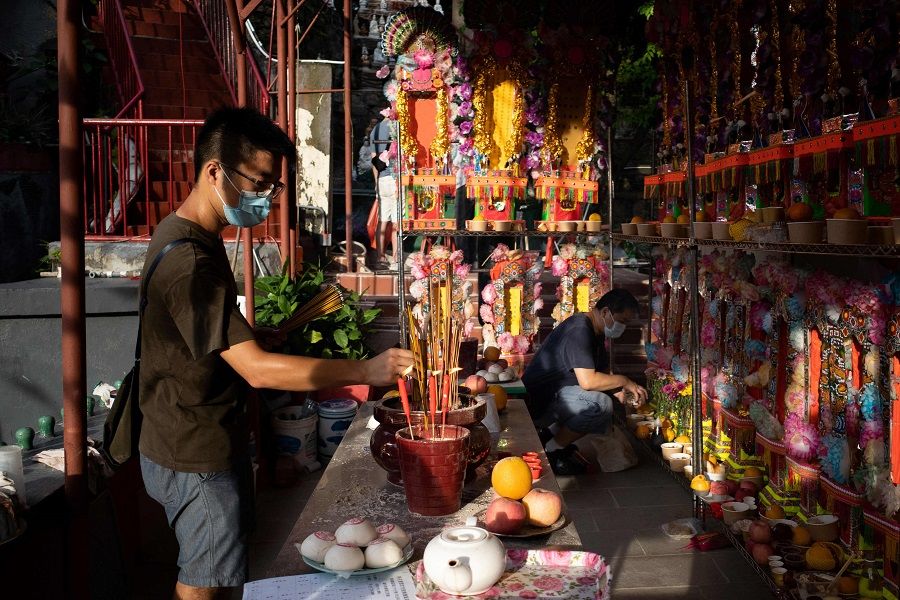
From a socio-psychological point of view, most societies need to conceive of a netherworld because when one passes on, there are so many things left unfinished, so many wishes and desires unfulfilled, and so many regrets to be addressed, individually or collectively. A netherworld could be the last resort to continue or end all these unfinished business. Of course, images of the netherworld differ, which inspires interesting comparisons concerning the cultural reasons for the difference.
A Greek writer (W) once wrote a dialogue capturing a sarcastic conversation between himself and Charidas (C), his dead friend:
W: Charidas, what is below?
C: Great darkness.
W: What about resurrection?
C: A lie.
W: And the God of the Dead?
C: A myth. We perish utterly.
Such is the assessment of a person with no illusions of an afterlife. Paradoxically, the writer still needs to use the words of a dead person who has been to the netherworld to convey his despair. Indeed, the ancient Greeks in general had no expectation about the netherworld, as it was a dark and damp place where the dead existed, if at all, as a lifeless shadow. What is the relationship of such a netherworld with people's aspiration for happiness? One way to interpret it is to see it as a negative reflection of what is desirable: light, resurrection and a saviour god.
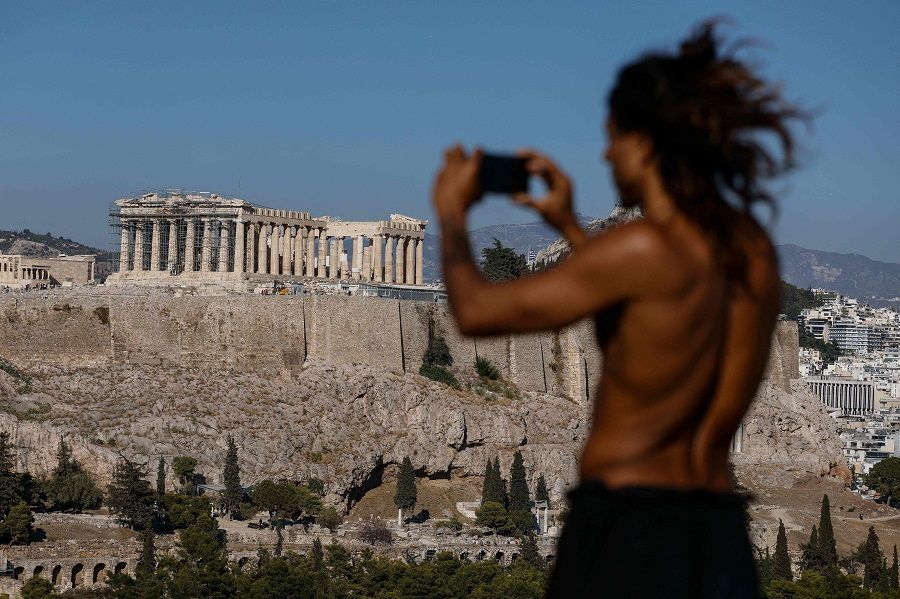
The Egyptians: Live an upright life for a blessed afterlife
The ancient Egyptians made this point from a positive angle: the dead will live a life in the land of the god Osiris, with all amenities in life met, happily ever after. This happy life, however, does not come as a free gift. There are various moral prerequisites to meet if one aspires to reach that blessed state of existence, to become the follower of Osiris, god of justice and resurrection. Happiness can be guaranteed if one follows the moral teaching that the society requires, as stated in Chapter 125 of the Book of the Dead:
I have not done crimes against people,
I have not mistreated cattle,
I have not sinned in the Place of Truth.
I have not known what should not be known,
I have not done any harm.
I did not begin a day by exacting more than my due,
My name did not reach the bark of the mighty ruler.
I have not blasphemed a god,
I have not robbed the poor.
I have not done what the god abhors,
I have not maligned a servant to his master.
I have not caused pain,
I have not caused tears.
I have not killed,
I have not ordered to kill,
I have not made anyone suffer.
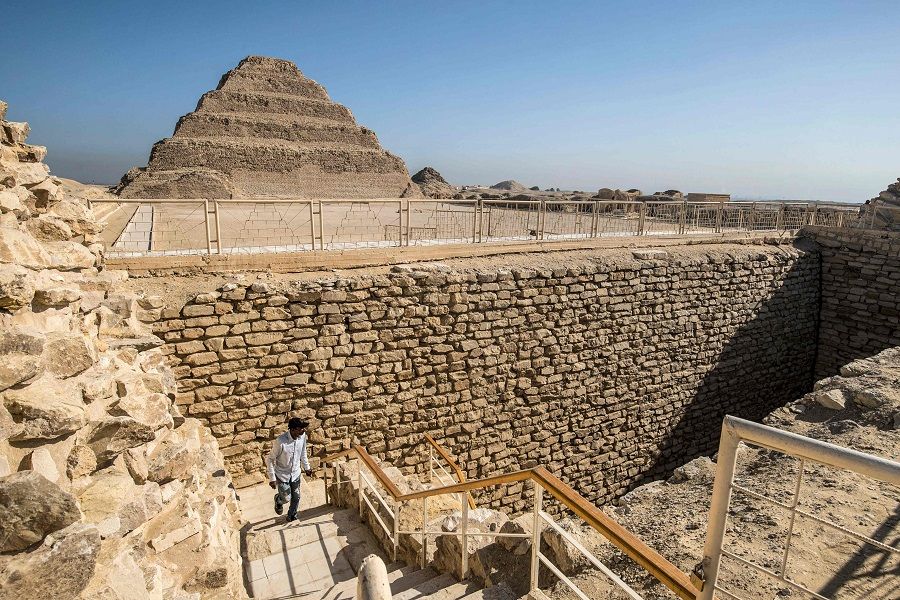
The Chinese: Physical amenities to deal with the afterlife
This series of religious and social ethics gives a clear indication of the path to happiness for the ancient Egyptians. On the other hand, there was no guarantee for a happy afterlife for the Chinese, not before the coming of Buddhism anyway. We do not find anything similar to the Egyptian idea of a list of moral values that are sanctioned by a god as entry tickets to the blessed next life. In Han China, people filled the tombs with objects and verses of magical spells, indicating the wish for a happy life, guaranteed not by any ethical values, but by the ability to supply proper physical amenities.
One type of magical spell, called "tomb quelling text" (镇墓文) or "exorcistic text" (解注文) could help to illustrate this situation. To give an example, on a clay bottle found in a tomb dated to 173 CE, was written the following sentences:
Today is an auspicious day. It is for no other reason other than because the deceased Zhang Shujing, who unfortunately died prematurely, is scheduled to descend into the grave. The Yellow God, who created the Five Mountains, is in charge of the roster of the living, and recalling the hun and po, in charge of the list of the dead. The living may build a high tower; the dead return and are buried deeply underneath. Eyebrows and beards having fallen, they drop and become dirt and dust. Now therefore I (the Messenger of Heavenly Emperor) present the medicine for removing poll-tax and corvée conscription, so that the descendants will not die. Nine pieces of ginseng (人参 renshen) from Shangdang substitute for the living. A lead figurine (铅人 qianren) is intended to substitute for the dead. The soybeans and melon seeds are for the dead to pay for the taxation underground. The medicine lizhi and mouli are to remove the earthly evil, so that no disaster will occur. When this decree arrives, restrict the officer of the Underworld and tell him not to disturb the Zhang family again. Doubly urgent as prescribed by the laws and ordinances.
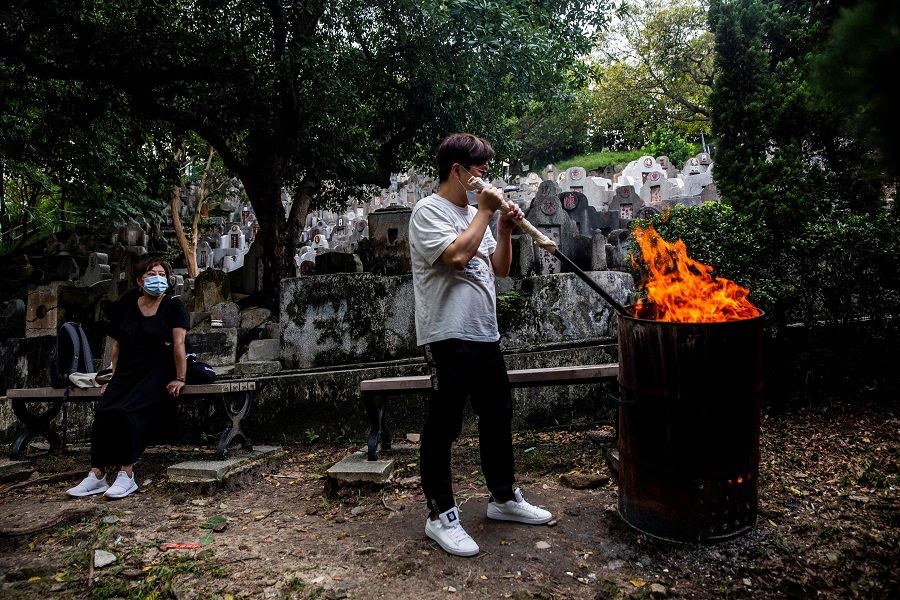
Another text, dated to 175 CE, has the following sentences:
The Heavenly Emperor [issued] a decree, to secure the tomb of the local dead Xu Wentai. Command the assistant of the Mount, the Lord of the Cemetery, the two-thousand-bushel of the Underground, [who are] above, below, in the middle, to the left and right of the tomb, the officer of the tomb gate, the elders of Gaoli thus: Let the family and descendants of Xu Wentai not die again in the future. The heaven above is black, the earth below is misty. The dead return to Yin, the living return to Yang. The living have their district, the dead have their village. The living belong to the [jurisdiction of] Changan to the West, the dead belong to the [jurisdiction of] Mount Tai to the east. In happiness you should not miss each other, in distress you should not long for each other. When the [god] of Mount Tai is to summon you, use the ginseng to answer the call. If there should be punishment of the culprit in the Underground, the "honey figurine" should be substituting the dead. For thousands of years the living should never be inculpated. To help the living family members and descendants of Xu to become rich and powerful, with billions of wealth, and abundant descendants. Hereby I present gold and silver to satisfy the tomb owner, and seal the tomb... [inscription becomes indecipherable] The ancestors of the Xu family tombs and the grandparents [shall not] leave the tomb, and not to cause any damage, and each at peace in his place. When the tomb gate is sealed, the names pass on to later generations, and not causing [further] death. The rest is as what the Heavenly Emperor [used to] decree.
If this could be seen as a reflection of the most pressing concern of the living, it says something about the deeply ingrained apprehension of the overwhelming control of the state machine in the life of the common people, ever since the establishment of a unified empire.
Practical, even in death
There are many interesting points in these texts concerning people's understanding of the workings of the netherworld and how one should deal with the various problems facing the dead.
First, the needs of the deceased in the netherworld, including daily sustenance, the handling of taxation and corvée conscription, should be taken care of; secondly, the welfare of the living descendants should be protected by means of ritual pronouncements and magical objects such as the ginseng. One recurring idea in these texts is that the dead should go his/her own way without any further engagement with the living.
Nowhere could we find any moral or ethical requirement for the deceased. Perhaps this difference between the Egyptians and the Chinese of the Han period reveals the difference between a religious culture where ethical and moral values are sanctioned by a belief in god, and a civil culture where moral values are sanctioned by social convention that is not under the jurisdiction of the deities. In other words, the gods (like the Yellow God) take care of the dead in a bureaucratic function, and not as upholders of moral values.
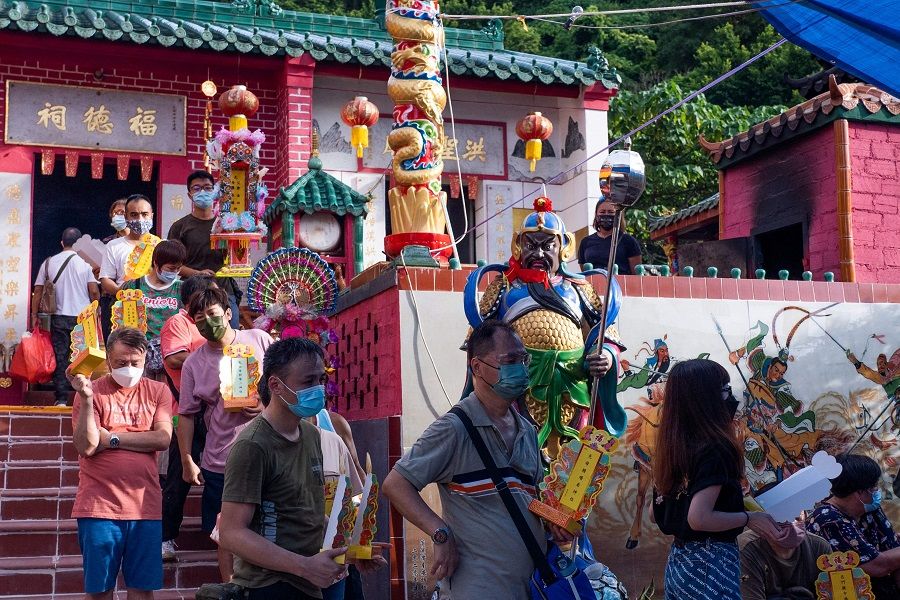
The emphasis on certain bureaucratic measures in these texts undeniably indicates a prevailing trend to envision the netherworld as mainly a bureaucracy to be dealt with. If this could be seen as a reflection of the most pressing concern of the living, it says something about the deeply ingrained apprehension of the overwhelming control of the state machine in the life of the common people, ever since the establishment of a unified empire. It was the eradication of these concerns, therefore, that reveals people's hope for a happy life, whether in this one, or the next. The Han mortuary material gives us an opportunity to look at how, amidst the interplay between belief and imagination, the Chinese people tried to pursue happiness within the confines of social reality.
Related: Questions concerning mortality in early China [1 of 3]: The idea of the netherworld | Questions concerning mortality in early China [2 of 3]: The netherworld is closer to us than you might think | A matter of life and death in the US, China and Japan | Ghost Festival: When the wall between the living and the dead crumbles
